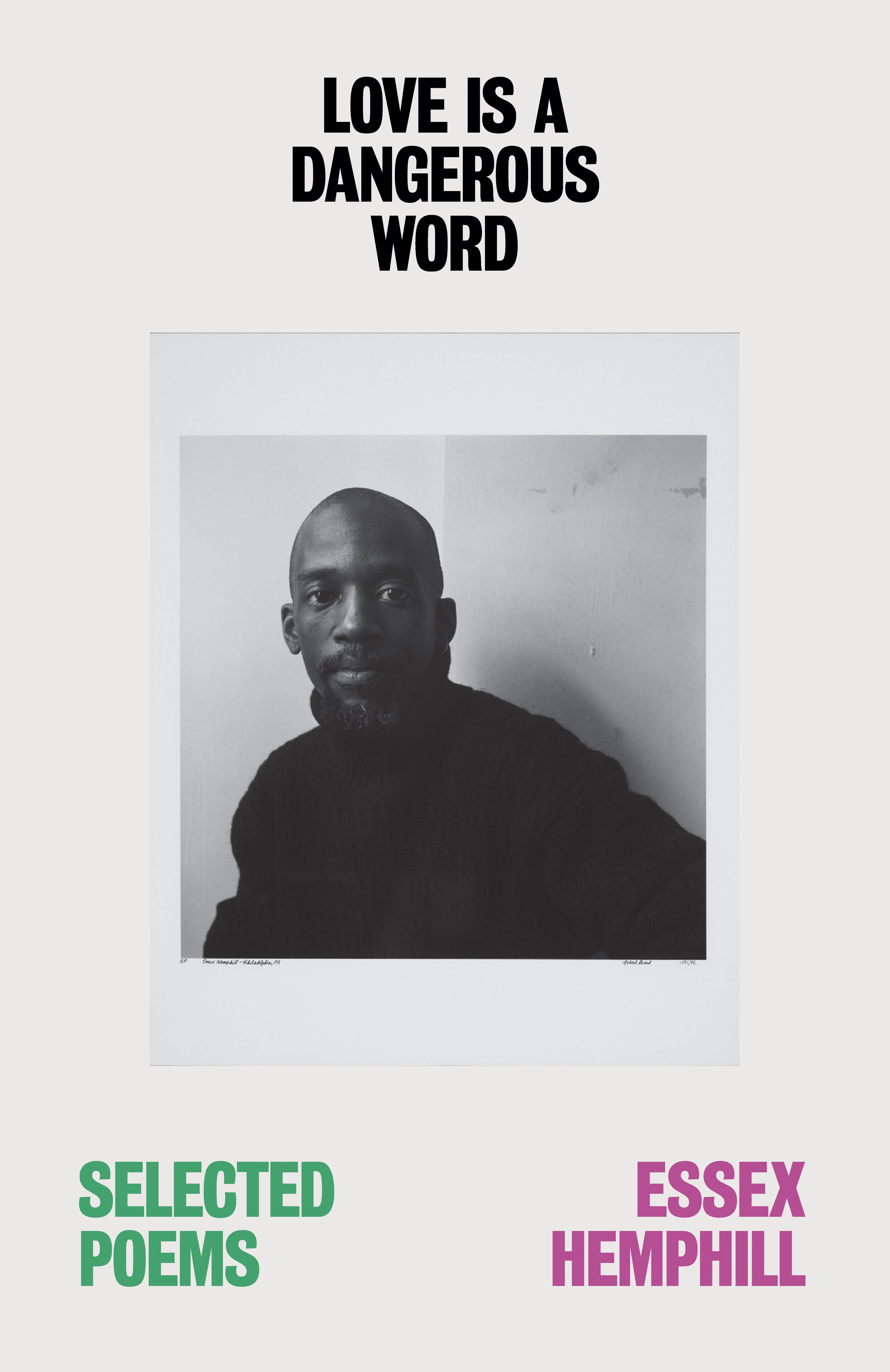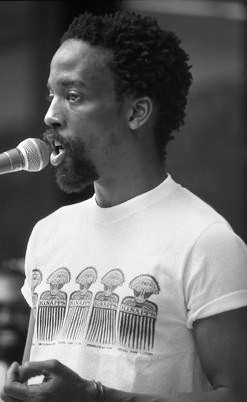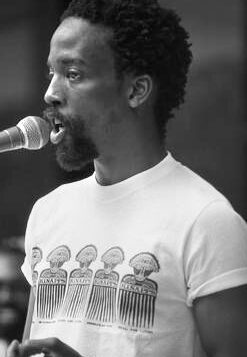 LOVE IS A DANGEROUS WORD
LOVE IS A DANGEROUS WORD
The Selected Poems of Essex Hemphill
Edited by John Keene
New Directions. 192 pages, $18.95
CONVEYING queer identity, sexuality, and social disadvantage as an African-American man in the late 1980s, Essex Hemphill was a poet whose voice is as strong and necessary today as it was back then. His poetry covers large and significant literary terrains, embracing queer, African-American, and AIDS-related themes. His most gripping collection, Ceremonies, first published in 1992, has long been out of print. A new collection of his poems titled Love Is a Dangerous Word gives readers a new opportunity to engage with his enthusiastic voice, the product of a time that should not be overlooked or forgotten.
Sexual liberation, family traditions, and the backlash of society trying to prevent a queer Black man from living comfortably within his own skin—these are themes that Hemphill understands, along with the courage it takes to be oneself, to embrace one’s physical appearance, to explore one’s sexuality and a kind of intimacy that is often shunned and shamed by society.
Each stanza, each line, significantly impacts how we see and hear what Hemphill’s generation of queer men faced. He shows how men like him were treated as queer sons and as members of the family. In “Commitments,” he writes: “I am the invisible son./ In the family photographs/ nothing appears out of character.” His speaker’s position is that of having no position in this family. He offers up a smile to get by. Throughout the collection, he interrogates family structures and the people he finds most impactful to him, particularly his brother. I find this among many other queer youths: the fear of a backlash such that at any given moment your family might despise you for your sexual identity. Hemphill captures the feeling of constantly living in fear because you feel at odds with those around you.
 In “Meditations in a War Zone,” he examines other societal structures besides the family. Several of his poems address what the Black community had to endure during the crack era: “What if all Black men/ across varied differences/ agreed to pray in unison?” Acknowledging his fears for his race, he warns readers that extinction is possible, and he does so by drawing a comparison to the American bald eagle, a bird that should symbolize freedom but is constantly threatened with extinction.
In “Meditations in a War Zone,” he examines other societal structures besides the family. Several of his poems address what the Black community had to endure during the crack era: “What if all Black men/ across varied differences/ agreed to pray in unison?” Acknowledging his fears for his race, he warns readers that extinction is possible, and he does so by drawing a comparison to the American bald eagle, a bird that should symbolize freedom but is constantly threatened with extinction.
What stands out for me when I read Essex Hemphill is his broad honesty and the ways in which he expresses the desire for love and the complications of finding genuine love. In his early years, there was no discussion of gay marriage, no concern about safe sex between same-sex partners, or even programs that defended the outcomes of sexual liberation. Whereas we continue to fight for equality, Hemphill’s words were a beacon for what was to come. Exploring a society that wants us to vanish in the blink of an eye, Hemphill has the courage to offer hope that many more would not have to experience such a fate. His words challenge us never to forget that our sexual experience, relationships, and growing happiness are truly vital.
Most queer men in prior decades were expected to suppress the urge for intimacy and never betray their identity in public. Hemphill’s poems do not shy away from first-person narration and convey the impression that he is the center of these fantasies, these experiences, and the decision to experience intimacy. There are moments when he lingers on the desire of being seen rather than just felt, for his lover to be visible and not threatened for choosing a love that could lead to his death.
Toward the end of the collection, I felt a deep connection with Hemphill, an understanding of where he came from and what he cared about, but also of his wants, his deepest longing for a world free of the myriad constraints that our world imposes. This message feels as important now as it did in his day. His poems wish that neither race nor class had any sway, that love didn’t come at such a steep cost. They envision a world in which gay men can live as others are allowed to live, without hesitation, without fear, without having to hide.
One of the difficulties readers are asked to contend with in this collection is the hardship of the AIDS epidemic and the impact it had on Hemphill’s community. He draws attention to what was then known as a gay disease, to realistically show the importance of human connection to a condition that took so many lives in a time of terror and pain. In “Civil Servant” he writes: “I troubled myself/ to remember their names./ I visited their homes.” The poem provides a brief look into the perspective of AIDS patients and the potential connections he had with men losing their lives. His poems remember their names and make it a mission to never forget.
Love is a Dangerous Word is both a triumph and a testament to what queer individuals have had to endure. Within the collection, there is trauma. But with a devotion to his craft, Hemphill gives voice to those lost and reminds today’s readers of the brutal honesty it took to write these poems. For me, he is more than a poet with outstanding ability to observe, more than a pioneer. His is a voice of reason that must be heard. Hemphill’s work remains evocative because of its powerful imagery and concrete details. Love Is a Dangerous Word is both vigorous in its rage and intimate in its approach to what it means to be a queer man of color fighting for the simple right to love.
Gabriel X. Hendrix is a writer whose essays have appeared in The Body and The Los Angeles Review of Books.





